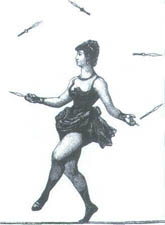

This analysis considers how My Mad Fat Diary explores complex feminist concepts and identities. In doing so, this television program engages with complex feminist concepts such as intersectionality and narrative instability and renders these concepts intelligible to audiences with varying degrees of theoretical familiarity. Yet the show offers a fresh look at tired tropes by ignoring dramatic conventions that suggest that ugly truths or non- normative bodies should remain out of view and instead sheds light on ignored, but common, teen experiences and identities. My Mad Fat Diary profiles young people falling in and out of love, fighting with their parents, experimenting with drugs and alcohol, and testing limits. We suggest that unexamined contradictions that arise from this mismatch may be counterproductive to the important subversive aims of the movement. Rather than dismiss the power of identity politics, we argue for a careful reframing of the relationship between identity politics and intersectionality in fat activism and Fat Studies. We argue that an identity politics approach (exemplified through embodied visibility and declarations of ‘thin privilege’) has the potential to create boundaries for policing and exclusion, and is thus at odds with the much broader axes identified by intersectorial approaches. Drawing upon Linda Alcoff’s feminist philosophy, we examine how identity politics and intersectional perspectives are both used in fat activism, yet have the effect of creating unresolved tensions between singular and multiple embodied identities. It is not surprising that fat activists and Fat Studies scholars bring different ideologies to the table, yet the differences between them have not been adequately scrutinised or theorised.

In this article, we reflect on our engagement with a Fat Studies conference, and critically interrogate the assumptions that underlie this particular space.

Both groups are diverse, yet share a common goal to celebrate and/or accept fatness, and challenge practices and discourses that reinforce ‘normal’ bodies (such as diets, ‘fat talk’ and medicalisation). With the rise of ‘globesity’, fat activism and Fat Studies have become political players in countering negative stereotypes and the devaluation of fat bodies.


 0 kommentar(er)
0 kommentar(er)
